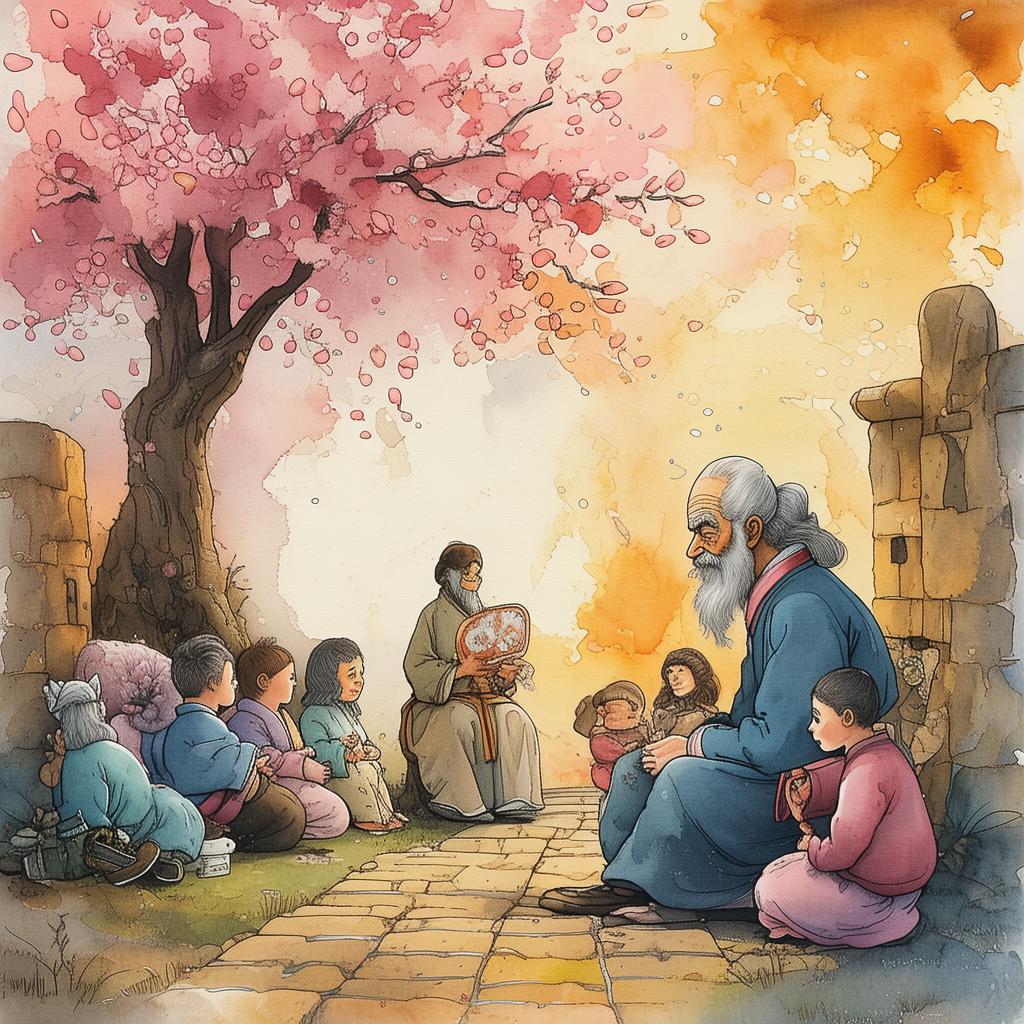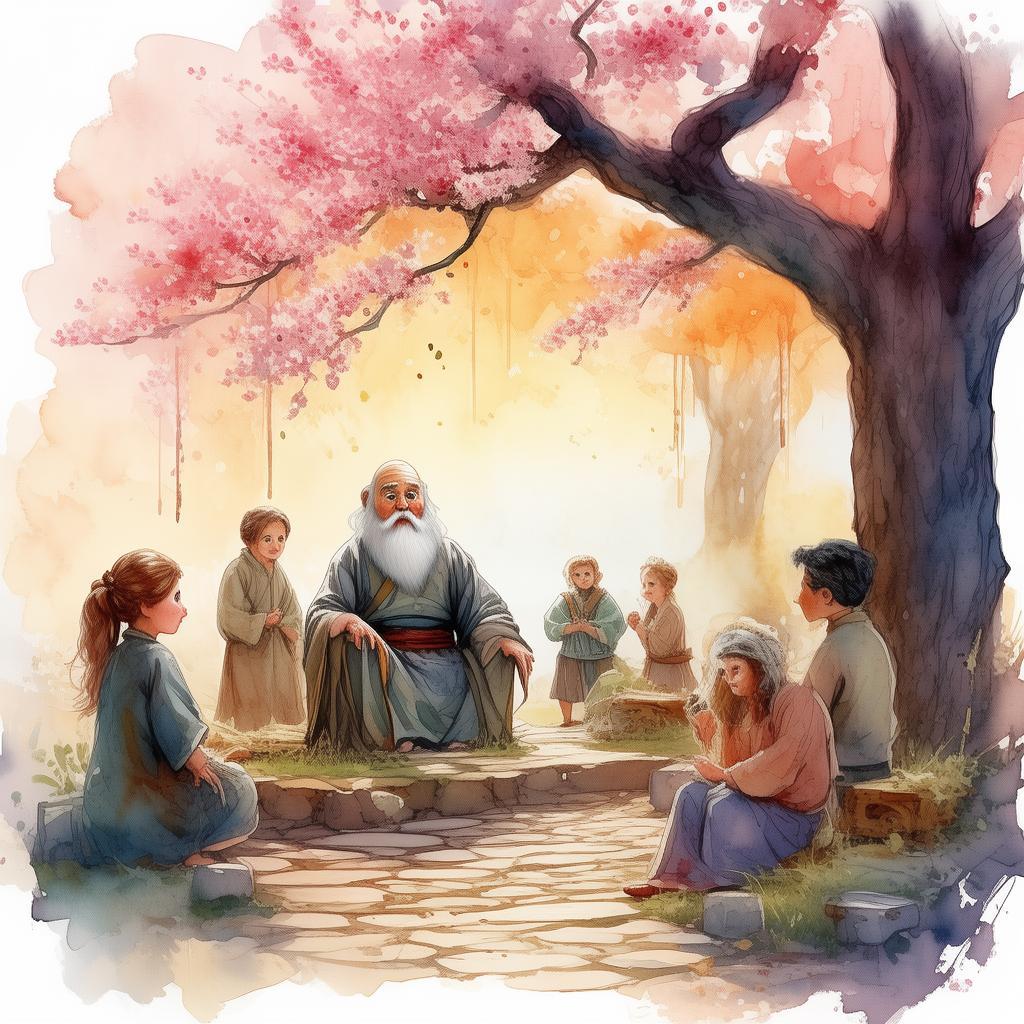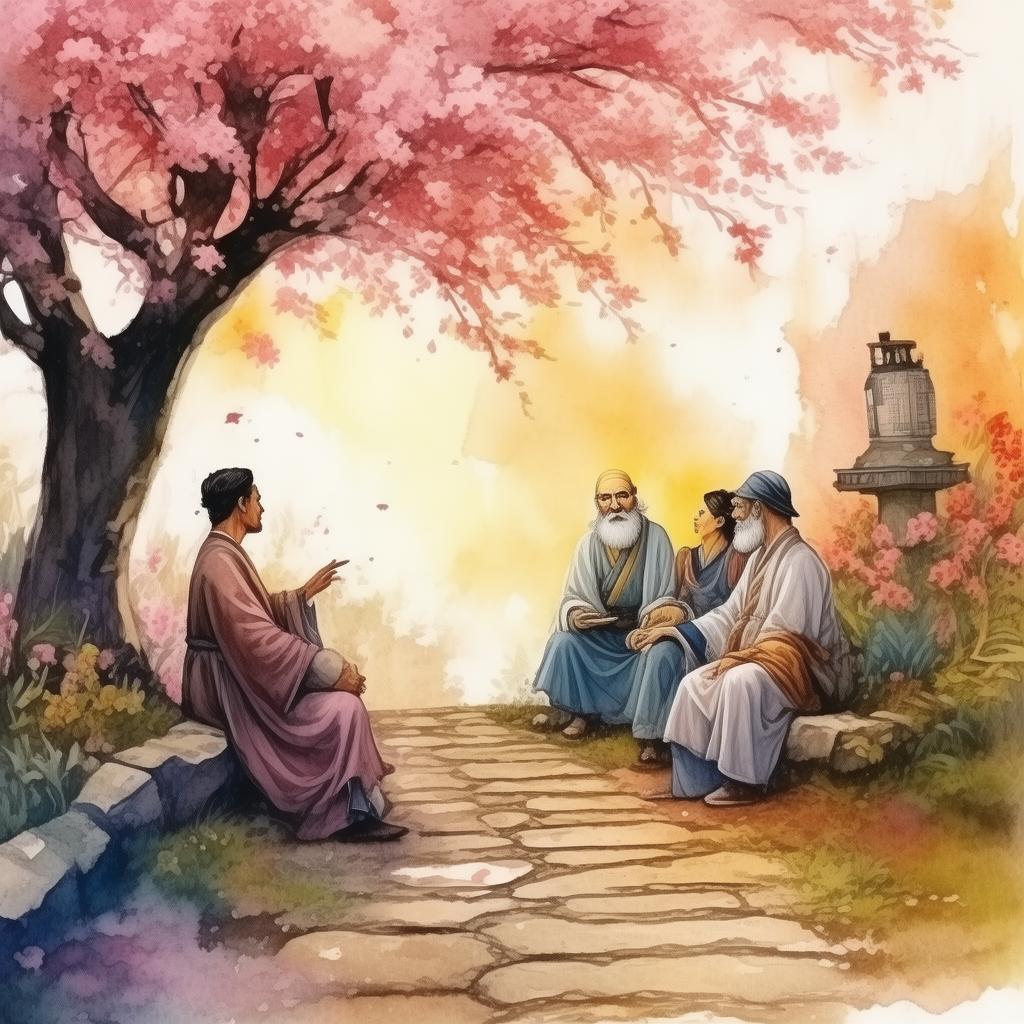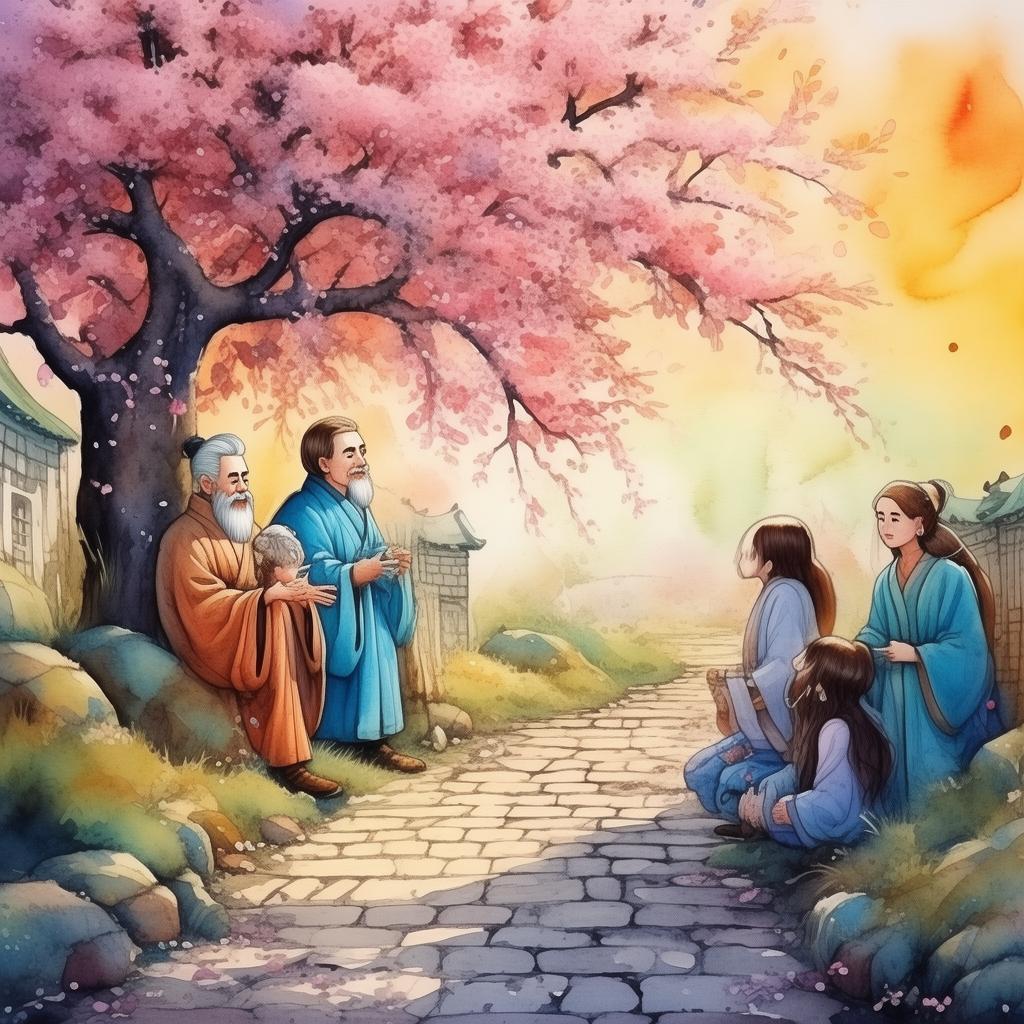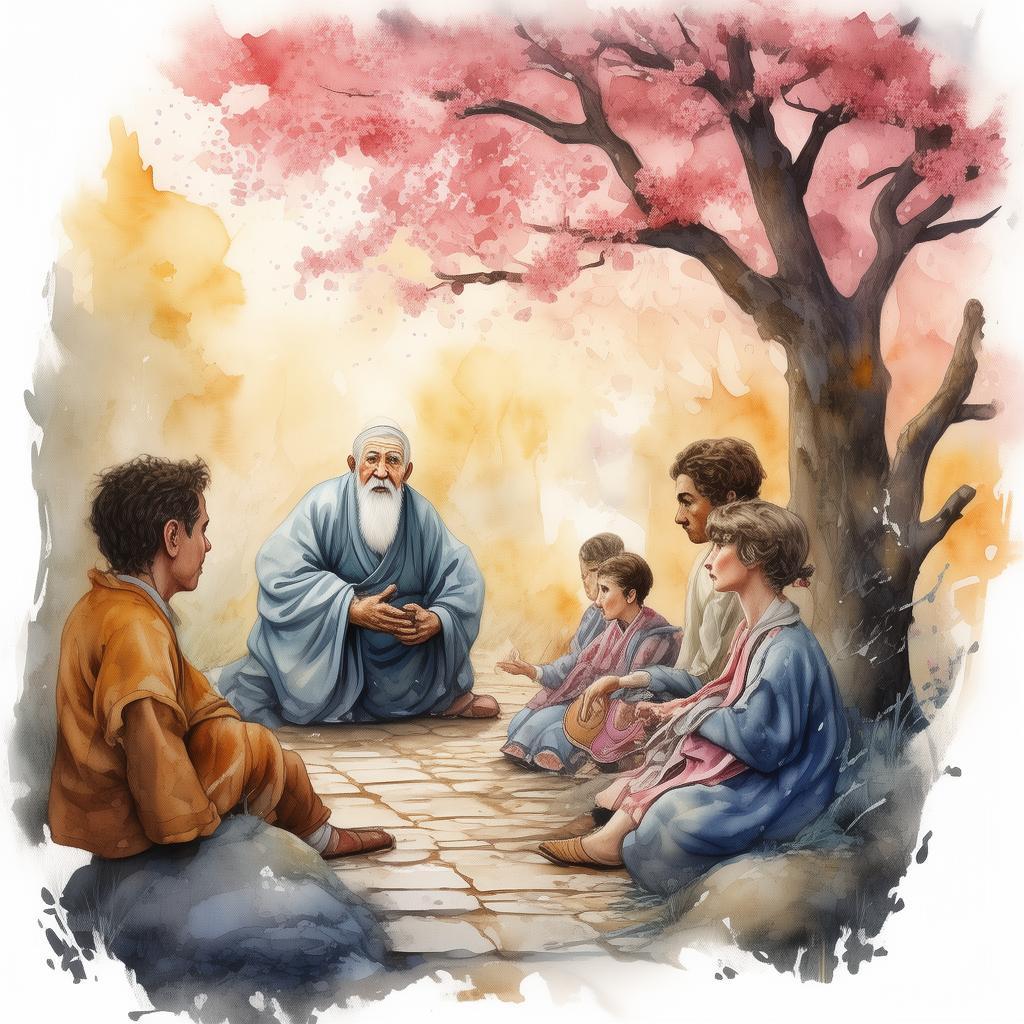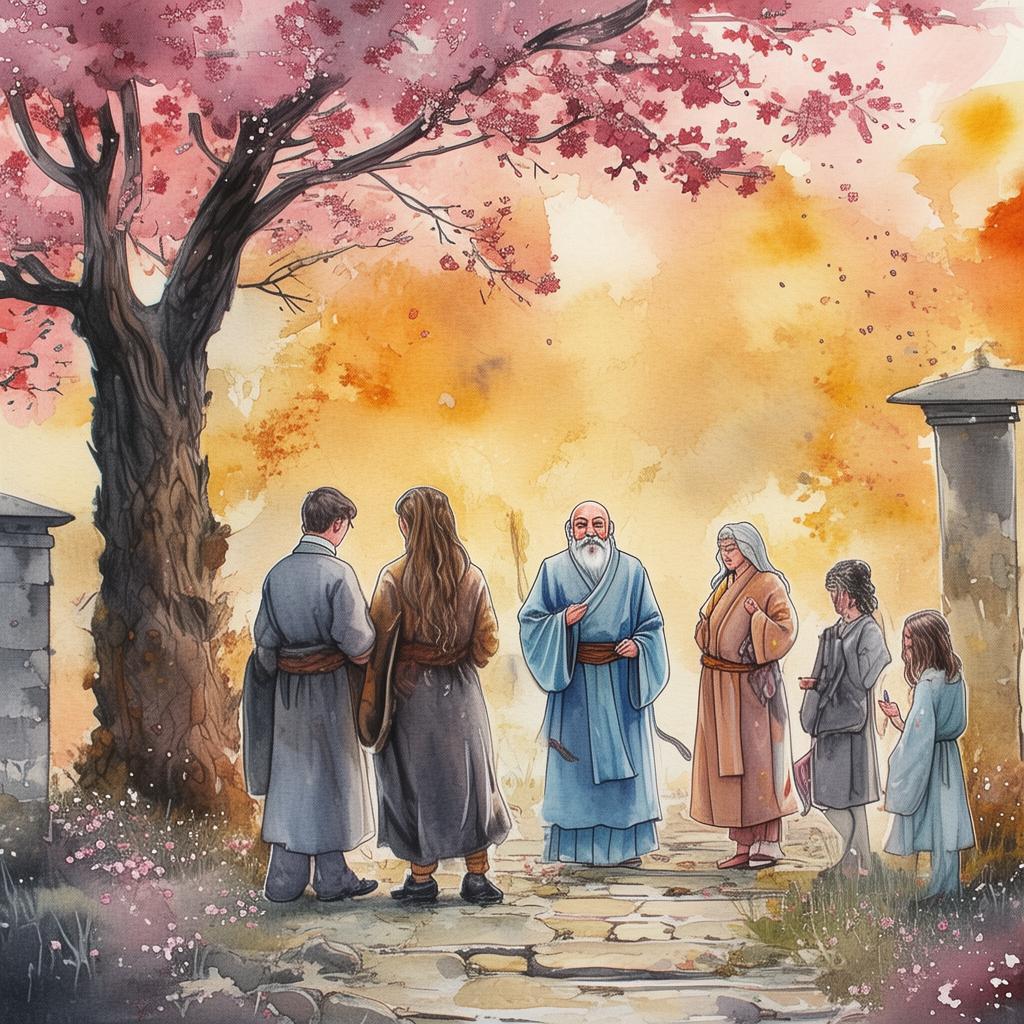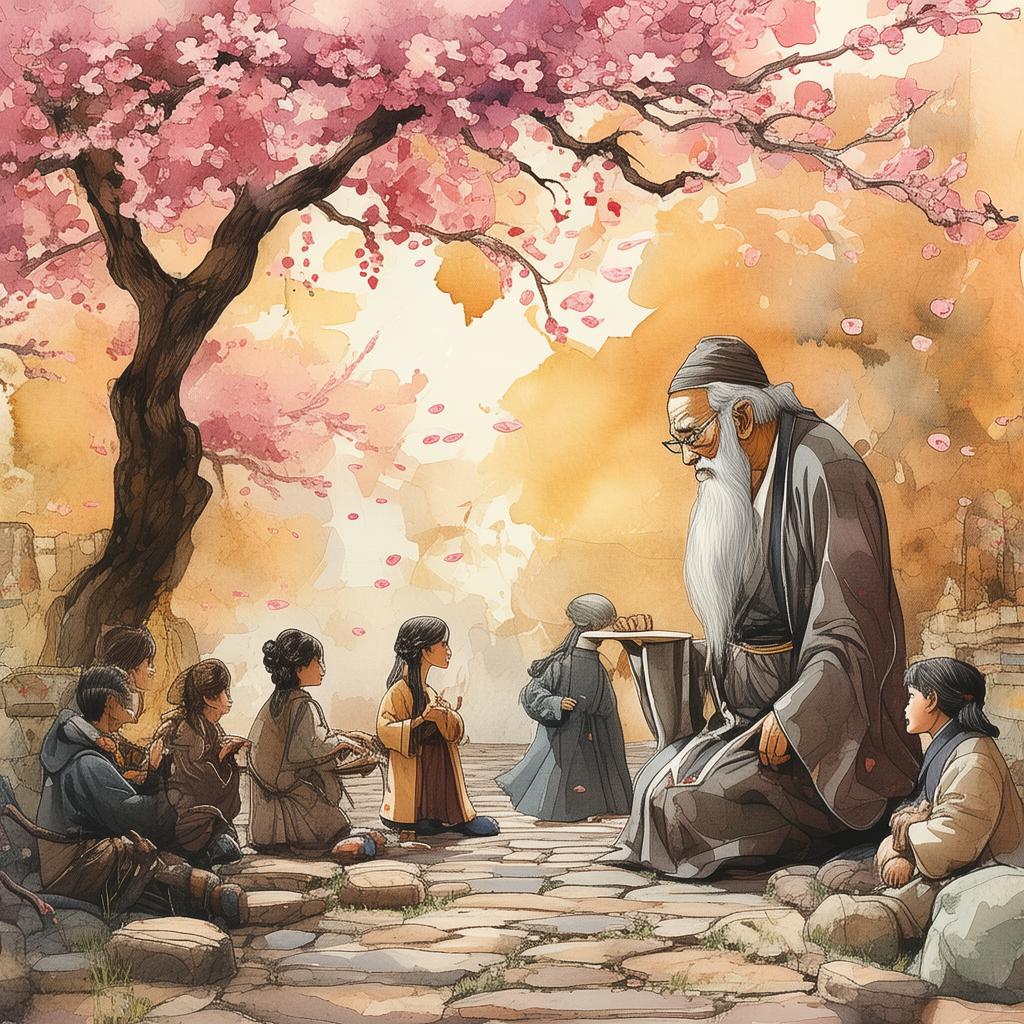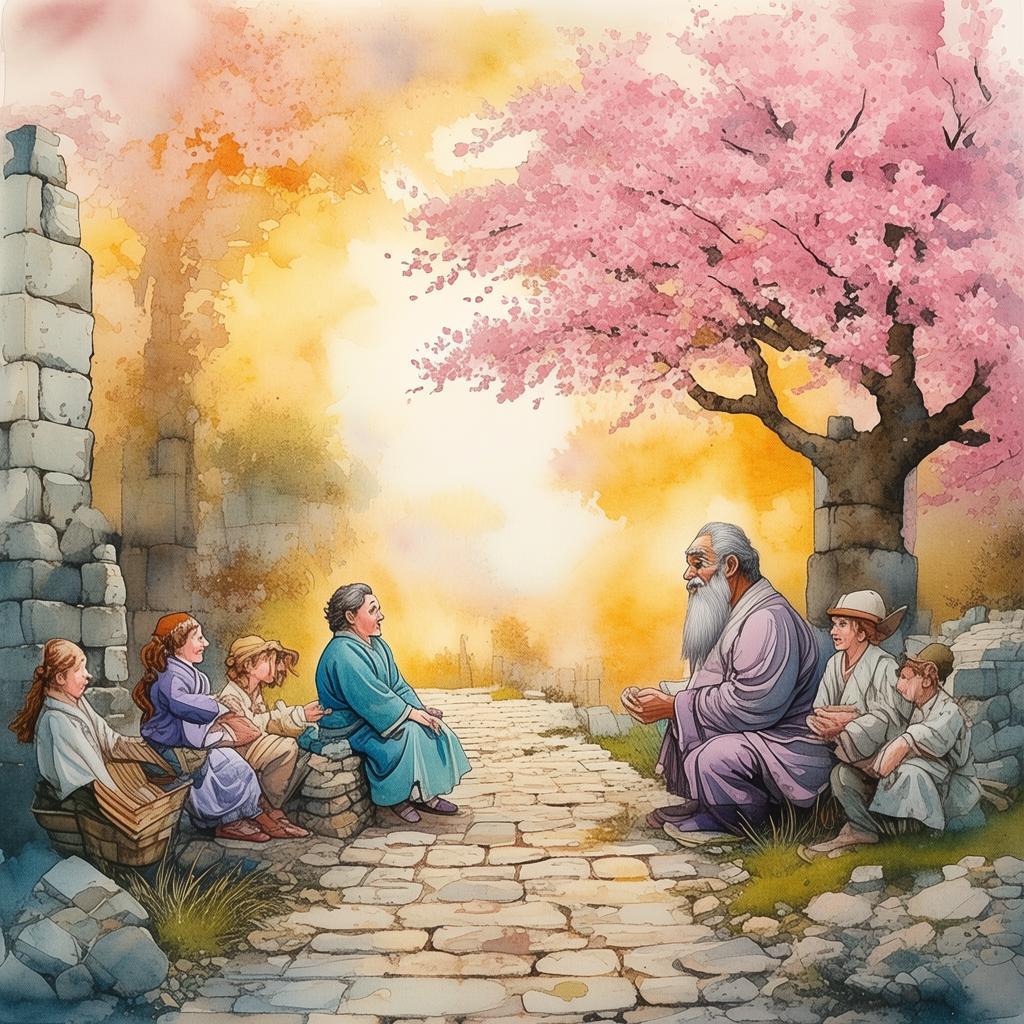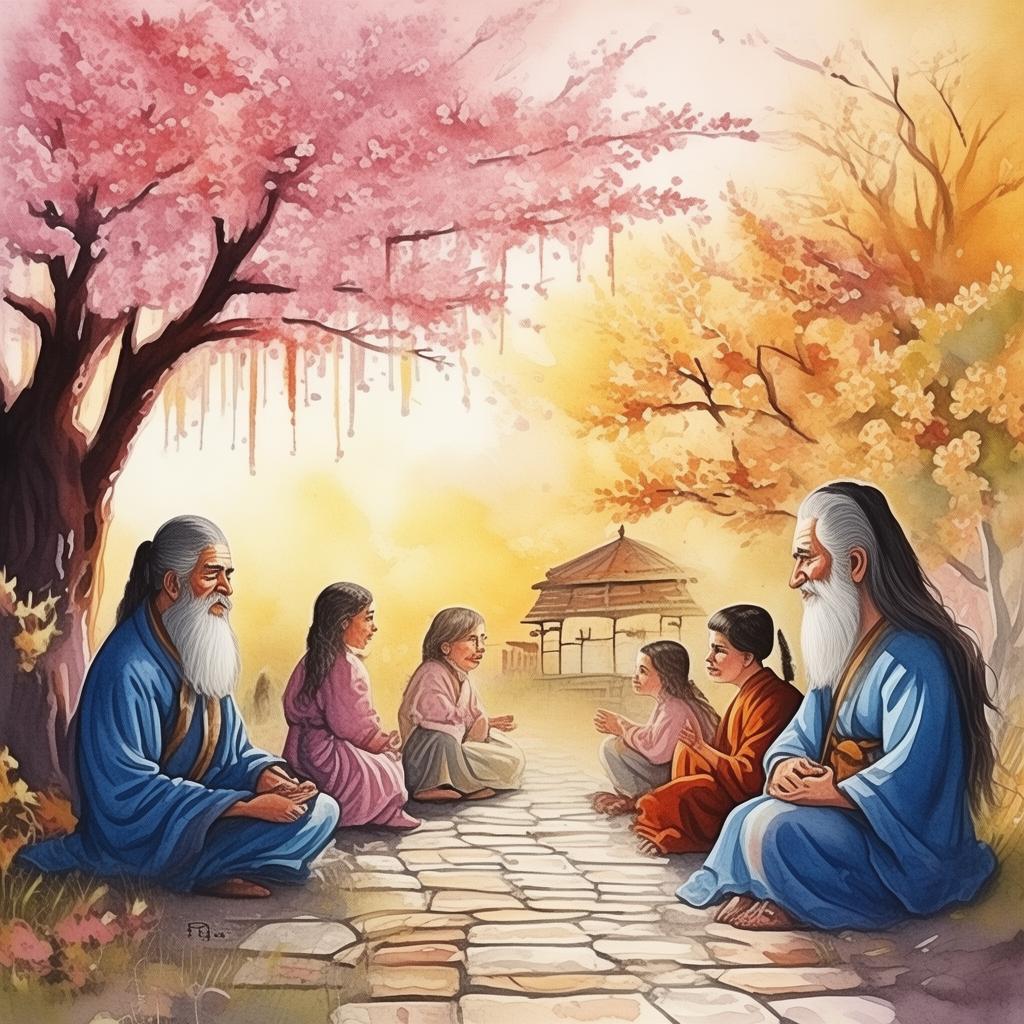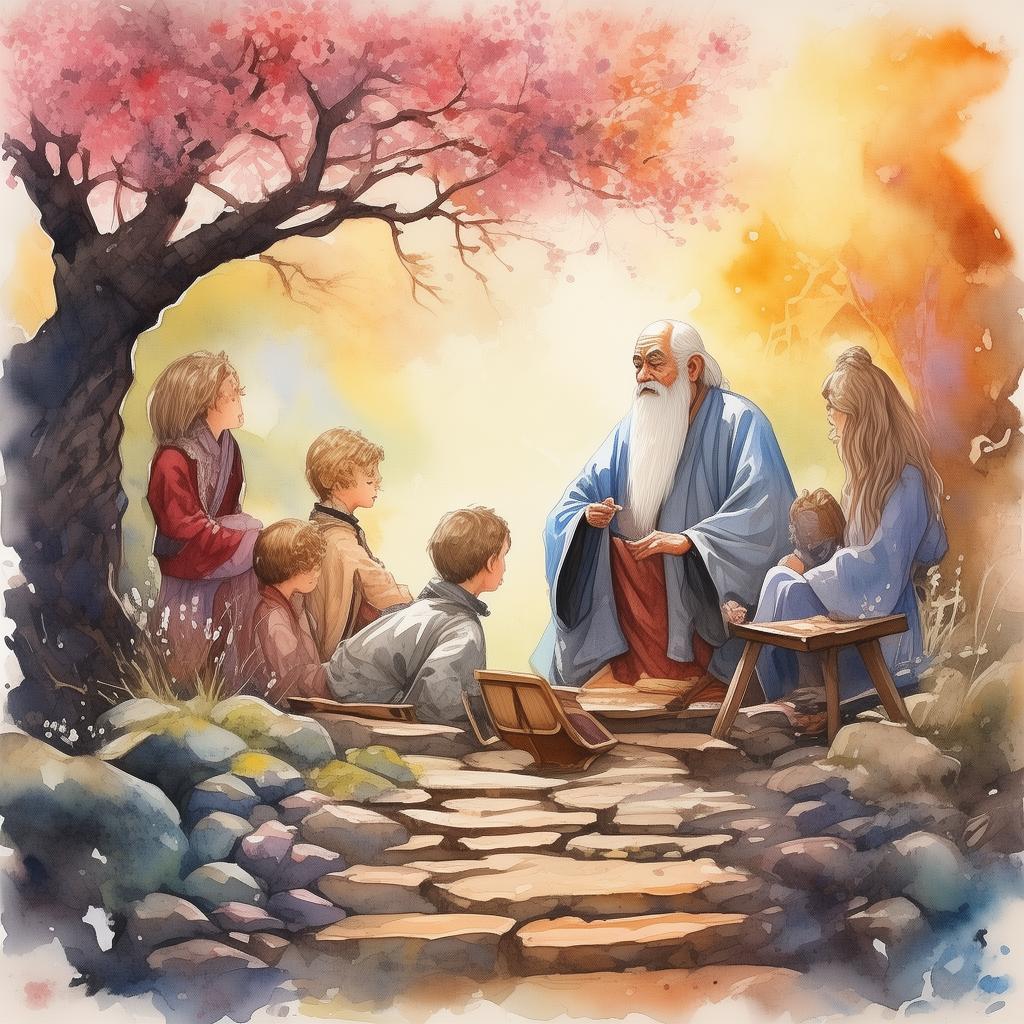The Labyrinth of the Resurrected Seeker
In the heart of the ancient Chinese countryside, where the whispers of the past mingled with the present, there lay a labyrinth known only in the legends of old. It was said to be the domain of spirits, a place where the boundaries between the living and the dead were as thin as the morning mist. The labyrinth was called the "Lost Labyrinth," a place where even the bravest of adventurers had perished without a trace.
In a small village nestled among the mountains, there lived a seeker named Li. Li was no ordinary man; he was driven by a profound love for his late wife, Mei. Mei had passed away under mysterious circumstances, leaving Li with a heart full of sorrow and a burning desire to find her again. The villagers spoke of the Lost Labyrinth as a place of both peril and promise, where the dead might be resurrected if one were truly worthy.
One night, under the moon's silver gaze, Li stood before the labyrinth's ancient entrance, its stone walls etched with cryptic symbols. The villagers had whispered of the trials he must face: riddles that tested the mind, challenges that taxed the body, and spirits that sought to deter him from his quest. But Li's resolve was unbreakable. He knew that the only way to bring Mei back was to venture into the labyrinth and confront its secrets.
The first trial was a riddle posed by a voice that seemed to come from everywhere and nowhere. "The door of life is locked, and the key is death. What is the key that opens the door to life?" Li pondered the riddle, his mind racing with possibilities. After much thought, he realized that the answer was within him, for he had already faced death and overcome it. With newfound clarity, he declared, "The key is the will to live."
The labyrinth's second trial was a physical one, a race against time through a maze of shifting walls. Li's heart pounded as he dodged shadows and leapt over gaps, his breath coming in ragged gasps. He felt the weight of his love for Mei upon his shoulders, propelling him forward. As he reached the end of the maze, he found himself face to face with a spectral figure. "Why do you seek to enter the realm of the dead?" the spirit asked.
Li's voice was filled with emotion as he replied, "To bring back my wife, Mei, who has passed on before her time." The spirit nodded, moved by his sincerity. "Only those who have truly loved can find their way through the labyrinth."
The third trial was a test of courage. Li was led to a room filled with the bones of those who had failed to return. He was told that he must choose a bone to carry with him, a symbol of the sacrifice he was willing to make. Li chose a femur, knowing that it represented the strength and resilience he needed to continue.
As he ventured deeper into the labyrinth, Li encountered spirits of the departed, each with a story to tell. They spoke of their lives, their loves, and their regrets. Among them was an old man who had been searching for his lost son for centuries. Li listened intently, feeling a kinship with the old man's sorrow.
The labyrinth's final trial was a confrontation with the labyrinth's guardian, a being of immense power and wisdom. The guardian, a figure of smoke and shadows, demanded to know the seeker's true intentions. Li, with a voice that trembled but did not falter, declared, "I seek to bring back Mei, to give her life a second chance."
The guardian, moved by Li's love and determination, revealed the truth: Mei had not passed on to the afterlife but had been trapped in a spiritual limbo, her soul bound to the labyrinth by her own unresolved desires. To free her, Li must confront his own fears and release his attachment to her.
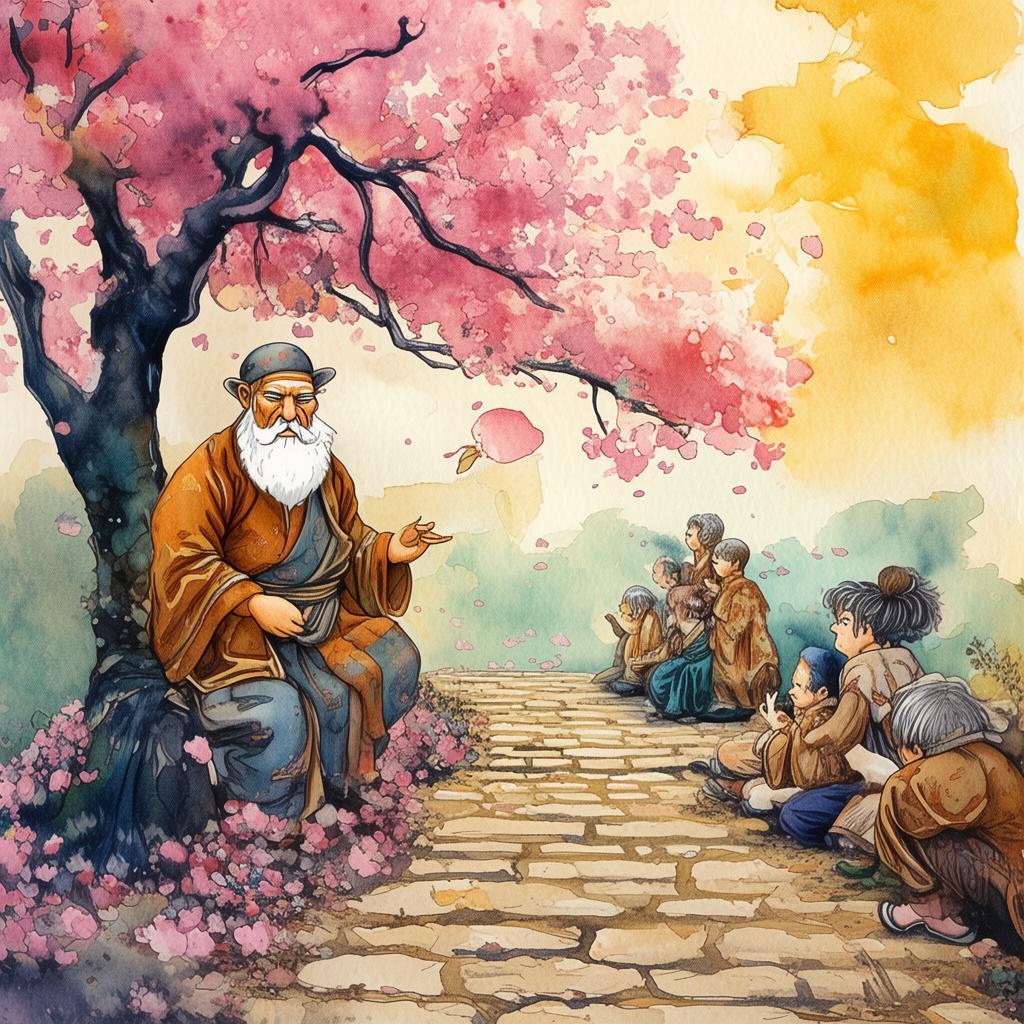
In a moment of profound clarity, Li realized that his love for Mei had been a prison for both of them. He chose to let go, to allow her to continue on her own path, and to live his own life fully. With a heart heavy but free, he declared, "I release you, Mei. Live your life, and let me live mine."
The guardian, recognizing Li's selflessness, granted him the power to break the bond that held Mei's soul captive. As the labyrinth's walls began to crumble, Li reached out with his last ounce of strength and whispered, "May you find peace, Mei."
The labyrinth's magic responded to Li's words, and Mei's spirit was released, her form shimmering and then dissipating into the night air. Li stood amidst the ruins, his heart filled with a bittersweet release. He had faced the labyrinth's trials, not only to bring back Mei but to find his own path forward.
As dawn broke, Li left the labyrinth, his journey complete. He returned to his village, a changed man, his heart lighter but not empty. He realized that true love was not about holding on but about letting go, and that sometimes, the greatest gift one can give is the freedom to live.
The Labyrinth of the Resurrected Seeker became a tale told for generations, a story of love, loss, and the enduring human spirit. It was a reminder that the greatest magic lies not in the realm of the dead but in the choices we make in life, and that sometimes, the greatest resurrection is the one we make within ourselves.
✨ Original Statement ✨
All articles published on this website (including but not limited to text, images, videos, and other content) are original or authorized for reposting and are protected by relevant laws. Without the explicit written permission of this website, no individual or organization may copy, modify, repost, or use the content for commercial purposes.
If you need to quote or cooperate, please contact this site for authorization. We reserve the right to pursue legal responsibility for any unauthorized use.
Hereby declared.
